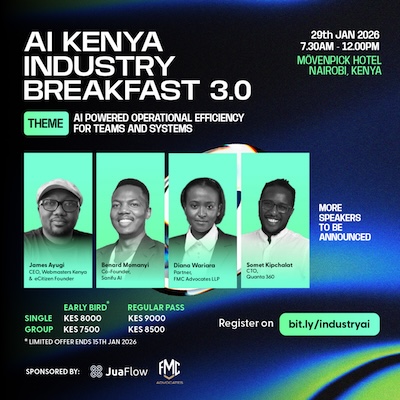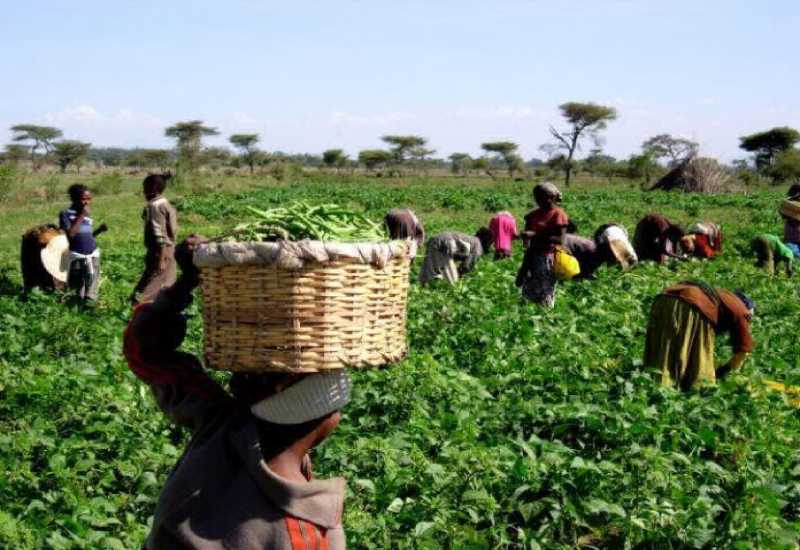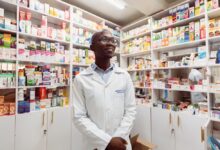
At a time where industries are called to relook operation models to survive, the agricultural sector has emerged as key to long-term growth in Africa and the world. Recognising the need for continuous investment in this area, particularly through technology, Microsoft recently hosted a virtual roundtable – further reaffirming its commitment to digitally transforming the sector.
On the continent, investments in agriculture technology have grown year-on-year. This is evident in the number of agri-tech startups increasing by 110 percent in the past two years. Furthermore, according to World Bank estimates, food production and processing in Africa currently generates over $300 billion annually, but that figure could rise to $1 trillion a year by 2030 if farmers are given the right access to inputs and resources.
Speaking at the event, Amrote Abdella, Regional Director at Microsoft 4Afrika noted that a long-term approach is key to enabling lasting change and impact in the sector. “Our strategy has always been to build deep partnerships with leading industry, governmental and non-governmental organisations; invest in infrastructure with a focus on solving unique challenges with globally-relevant approaches and build a relevant solution ecosystem. Investing in skills and agri-tech and the sector at large falls directly into this strategy.”
“With the sector sustaining 70 percent of Africa’s livelihoods, we’ve taken the lead to develop data-driven, connected farming that optimises yields, boosts farm productivity and increases profitability. Leveraging our extensive partnerships and initiatives network, we are committed to ensuring that all farming communities are equipped with the latest tools like AI, IoT and edge computing to improve productivity and sustainability across the sector,” continues Abdella.
The organisation has worked with various partners and customers across the region to realise this strategy and ensure access to the solutions developed. On a regional level, through its partnership with the Alliance for a Green Revolution in Africa (AGRA), Microsoft is exploring the use of big data and artificial intelligence in enabling data-driven, precision farming to support and increase farm productivity and profitability. The partnership also supports farmers in adopting new technologies through digital training content, develops digital skills in agriculture through an internship programme and supports policy advocacy and government engagement around the design of national agriculture digitisation strategies. The collaboration continues to support AGRA’s digital transformation as it works to improve food security for 30 million farming households across 11 countries by 2021.
“Our work with Microsoft has allowed us to deepen each area of work we have begun together both technically and geographically. Drawing on Microsoft’s digital architecture support on digital ecosystems and big data platforms has been beneficial for our organisation internally and externally, to the farmers,” says Vanessa Adams, Vice President Strategic Partnerships and Chief of Party, AGRA.
The organisation, through its 4Afrika initiative also signed a Memorandum of Understanding with the Ministry of Agriculture, Livestock, Fisheries and Cooperatives (MALFC) to collaborate in accelerating innovation in the agricultural sector in Kenya. As a partner to MALFC, 4Afrika is promoting sustainable growth and development in this sector – helping to preserve its socio-economic value and accelerate much-needed innovation in farming. Microsoft have been designing, piloting and launching a programme to drive innovation that addresses key challenges, such as pests and disease control, sustainable agricultural resource management, agri-weather data, and others.
Locally, SunCulture helps farmers improve their crop yields through solar-powered irrigation systems. Using IoT technology, SunCulture customers are generating 10x more annual income, experiencing a
300% increase in crop yields and saving 17 hours of manually moving water per week. And by leveraging TV white spaces (TVWS) technology that expands high-speed internet access to underserved areas, SunCulture is bringing precision farming to more smallholder farmers.
Another example from Kenya concerns Twiga Foods, a mobile-based business-to-business food supply platform, links smallholder farmers in rural Kenya to informal retail vendors in cities. With Twiga’s mobile platform, vendors can order fresh produce from farmers across Kenya at competitive prices. Twiga is driving microfinancing for smallholder farmers in Kenya, by creating credit history through goods transactions powered by Microsoft cloud solution. It currently benefits 8,000 farmers and 15,000 vendors.
Kenyan farmer-led agricultural product distribution company Amiran has also worked with Microsoft to enable the digital transformation of the industry at large. “Working with Microsoft, we have seen a positive impact, particularly with the ChatBot where PowerBI dashboard capabilities have the potential to be instrumental in accelerating the transformation and access to quality services for those who need it most,” says Trevor Sherwin, Head of Business Development, Amiran
“The purpose of todays virtual roundtable was to draw attention to and create awareness around an industry that is vital for the survival of humanity. We hope that by the insights explained and stories shared, that individuals will embrace the impact of digital transformation in the sector. We also look forward to cultivating new partnerships while strengthening current ones as we continue to work towards food security across the continent.” concludes Abdella.
Follow us on Telegram, Twitter, Facebook, or subscribe to our weekly newsletter to ensure you don’t miss out on any future updates.




